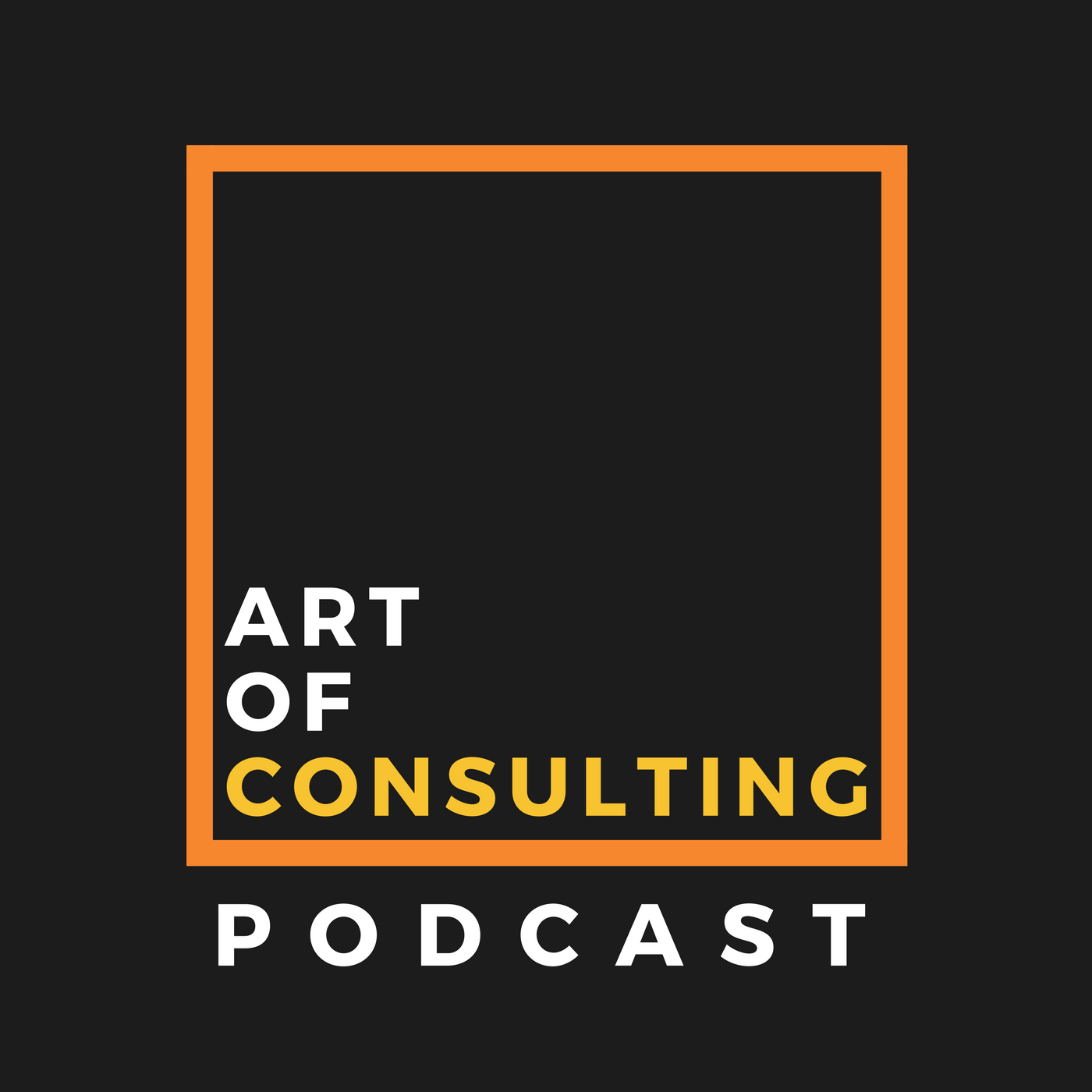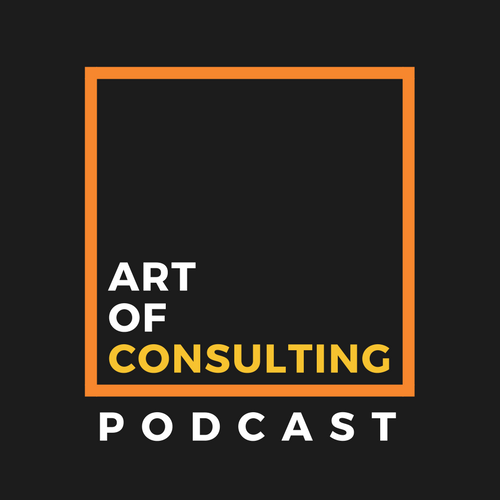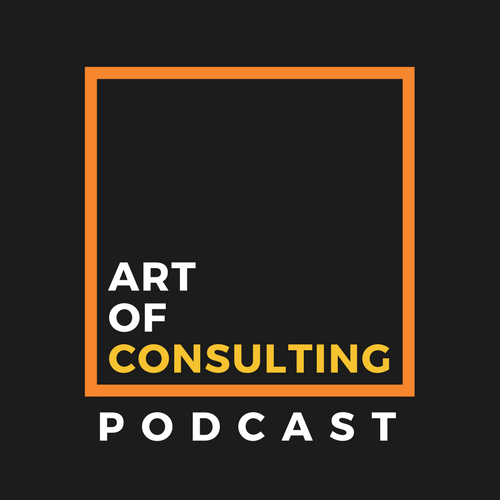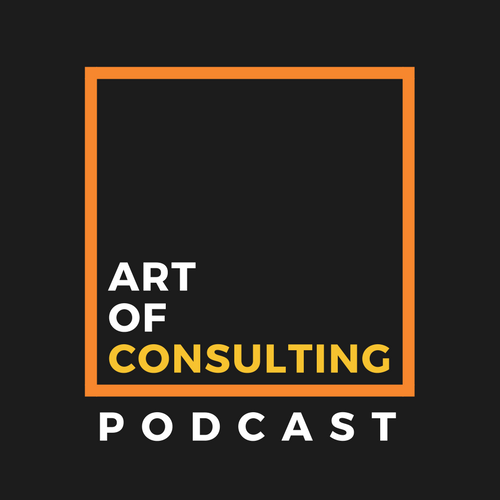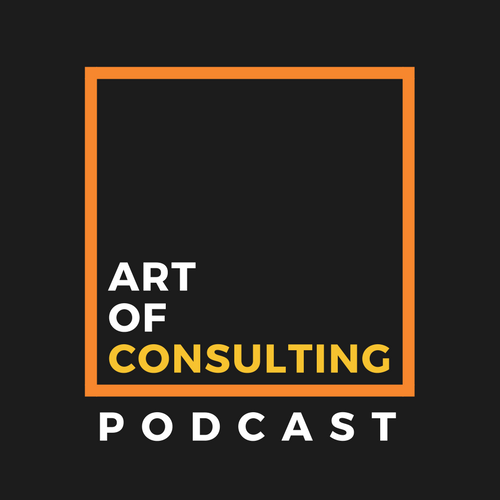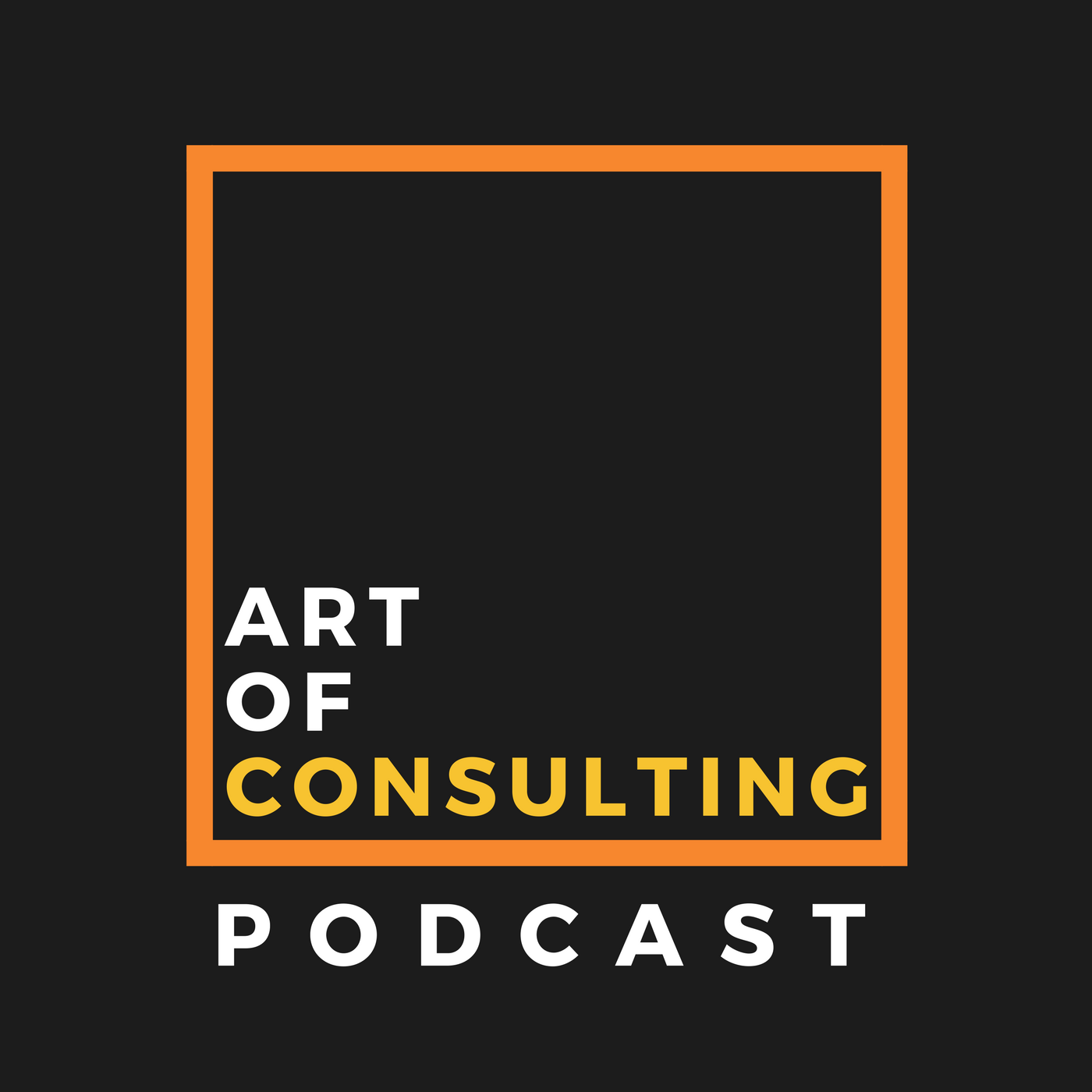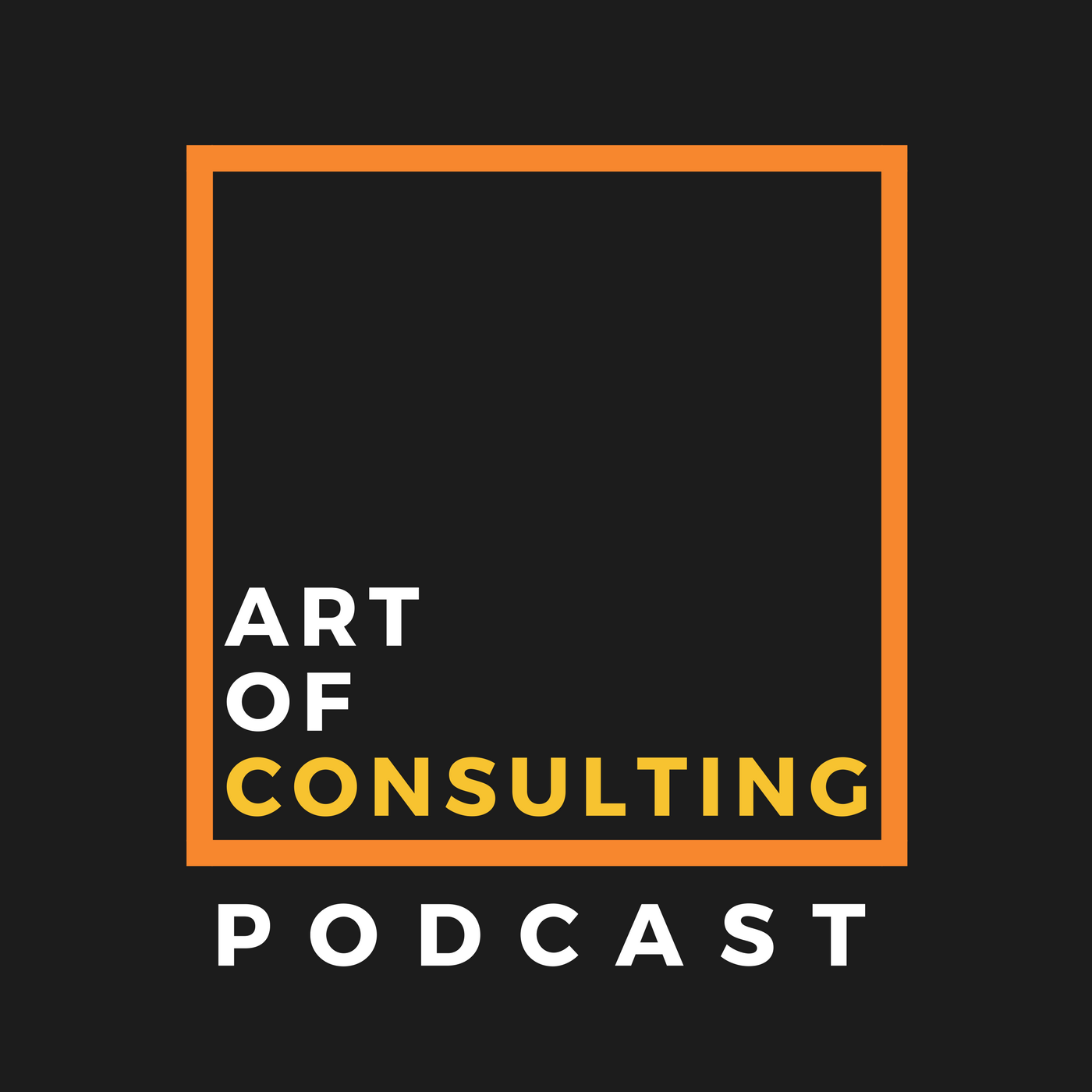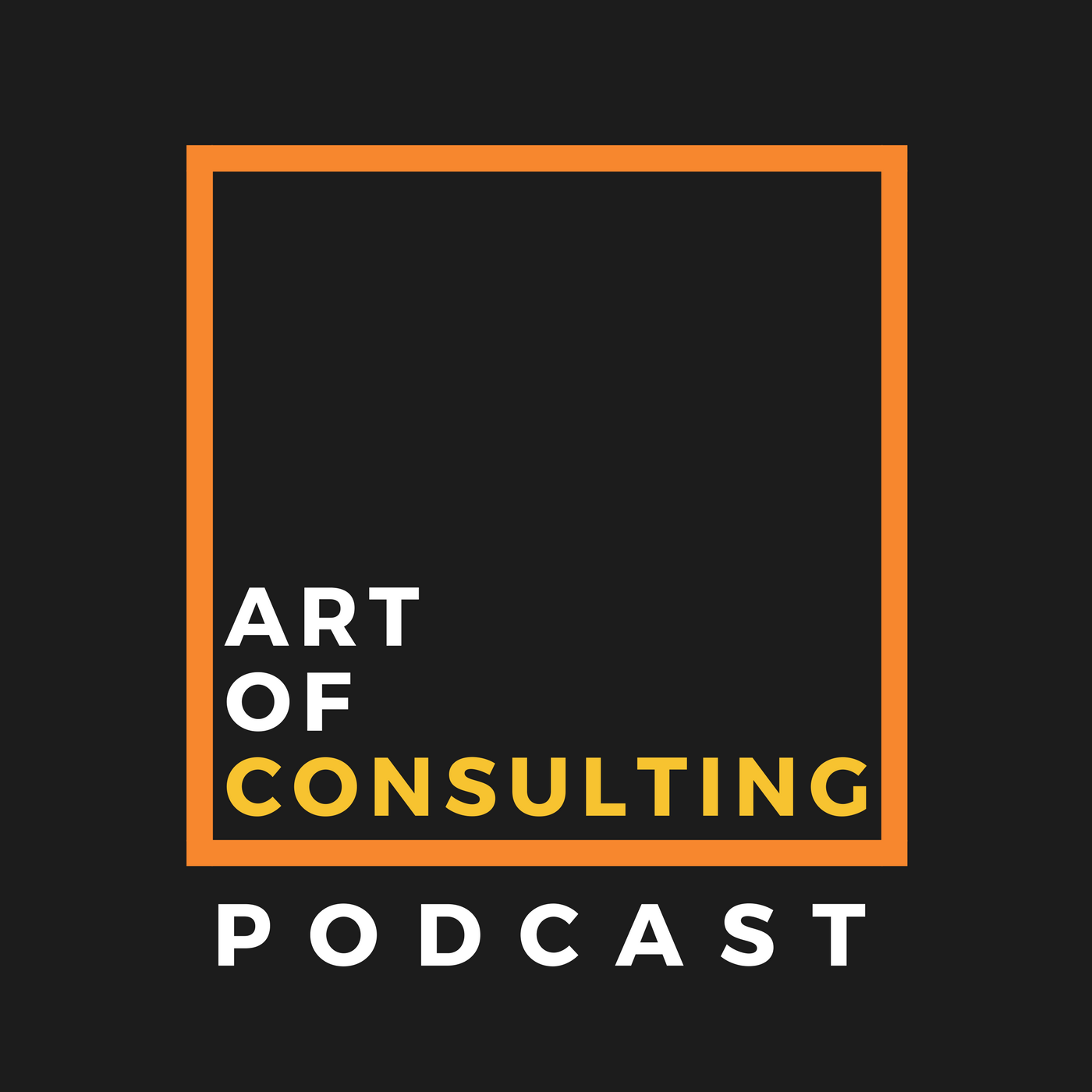262 | More Than Compliance - How Confidentiality Serves Us
Description
The Art of Consulting Podcast – Episode Transcript
Hosts: Andy Fry & Cat Lam Episode Topic: Non-Disclosure Agreements and the Power of Keeping Information Confidential
[00:00 – Intro Music]
Andy Fry & Cat Lam (together): Welcome to the Art of Consulting Podcast with Andy Fry and Cat Lam. We are seasoned IT consultants, CPAs, and professional-development connoisseurs. Each episode we bring you an inspiring message to help you discover that X-factor as a professional in your field so you can gain the success you know you deserve in your career and in your life.
[00:15 ]
Andy Fry: Hey everybody, today I want to talk about non-disclosure agreements and keeping information close to our chest.
One of the things that, as a consultant, you've either already signed or you will sign—especially if you're new to consulting—is a non-disclosure agreement, or what's commonly called an NDA.
It really is a confidentiality agreement that says you're not going to share information that is not already public with people who shouldn't have it. Publicly traded companies require this because if you have access to their financials, or you're in meetings where they're about to disclose material non-public information, you possess something valuable.
If you start talking to other people, sharing that privately, or—worse—publicly, you can be sued, fired, or face a whole range of consequences depending on the severity.
Most NDAs are signed purely for protection; you sign it, you agree not to share, and most of us never have to worry about it day-to-day. But the broader concept of confidentiality is absolutely critical in consulting—and, honestly, in our personal lives too.
[01:10 ] The number-one reason it matters? We're trying to prove we're trustworthy.
Trust is a huge thing for me. I even wrote a book called The Trust Paradigm (there are actually three books with that title, but mine's the one with Andy Fry on the cover). I wrote it because I wanted to figure out: What is trust? How do you build it? How do you measure it?
As consultants, we prove trustworthiness through integrity—making sure the information we hear isn't used for our own benefit.
"Our own benefit" can be financial (classic corporate espionage—yes, it happens at the corporate level too, not just governments). Or, more commonly, it's the ego boost of feeling important because we "know something" and get to tell it.
[02:05 ] I've always treated any confidentiality agreement as lifelong. I have clients I haven't worked with in years. The information I learned back then—probably all public by now—but there could still be context, reasons behind decisions, who said what about letting someone go or selling a division… I view that NDA as in perpetuity. I'm never going to talk about it.
I recommend everyone adopt that mindset.
I actually had a client bring me into a highly sensitive project with only a handful of people in the loop. They told me point-blank: "We're bringing you in because you've proven in the past you don't share things you hear." They still made me sign another NDA. I signed it and said, "Just so you know—when I sign this, I treat it as forever."
[03:00 ] Organizations can and do test for leaks. At high-clearance levels it's obvious, but even regular companies sometimes plant slightly different versions of the same information to see who's talking.
So ask yourself with every piece of information: Is this my story to tell?
I once had a family member share something very personal that was happening with my immediate family—me, my wife, and our two kids. It wasn't their story. I told them, "That wasn't yours to tell." It hurt because it showed a lack of boundary awareness.
[03:45 – Personal story – Calgary street encounter] I was walking in Calgary for a client, and a friend's wife comes out of an apartment building that definitely wasn't where they lived. Eyes got big, I nodded, kept walking. I spent the next week wondering, "Do I tell my friend?" A week later he called laughing: "Hey, I heard you ran into [wife's name]. She was visiting a friend who lives there and couldn't remember your name in the moment." We both laughed—she thought I kept walking because I suspected something, and I kept walking because I didn't want to accidentally say the wrong thing. Moral: We often don't have the full picture.
[04:40 ] As consultants we're paid for what we know. Having "extra" information can make us feel powerful, special, in the know. But watch high-performing executives in a room—they speak very little. Top performers are extremely discreet about what they share and with whom. That's the behavior we want to model.
[05:10 – Early-career story – drinks with another consultant] Over 25 years ago I was out for drinks. Another consultant bragged they'd just signed a big staff-augmentation deal with a health authority that was actually going to replace a bunch of internal employees. I had a close friend who worked there. I was torn—do I warn him?
A senior consultant gave me great advice:
- You care about your friend—that's valid.
- You don't actually know if the rumor is true or the full intent.
- Even if you tell him, what do you expect him to do? Quit? Confront his boss? Live in paranoia waiting for the axe?
Sometimes "sharing because we care" just offloads worry onto someone else.
[06:10 – Practical tips for everyday confidentiality]
- Speakerphone etiquette: If you're on speaker and others can hear, announce who's in the room (or the car). I don't want to swear or share sensitive info if your 7-year-old (or anyone) is listening.
- Recorded meetings / Zoom / Teams: Once it's recorded or transcribed, you no longer control that file. Assume anything said can be forwarded.
- Sharing with spouse or significant other: It's normal to need to vent, but sanitize the details. Leave out names, specific identifiers, anything that could accidentally get repeated at the next dinner party.
- Doctor/therapist analogy: You wouldn't want your doctor or therapist going home and giving your spouse a play-by-play with your name attached. Treat client info the same way.
Assume you live in a small town where everyone knows everyone. That mindset keeps you safe.
[07:30 – Closing]
If you're new to consulting, this is one of the most important professional habits you can build. If you're seasoned, it's a friendly reminder.
Keeping information confidential when it should be is simply the right thing to do—and it will accelerate your career because people will trust you with bigger, more sensitive, and more lucrative engagements.
So keep being awesome, work hard, and have yourself a great week.
[08:00 – Outro Music]

